Ant Bites Overview
-
Ant bites are defensive, occurring when ants feel threatened, or their nests are disturbed.
-
Fire ants and harvester ants are the most aggressive, delivering painful, venomous stings.
-
Carpenter ants and field ants bite but don’t sting, though bites can cause irritation.
-
Effective treatment includes immediate washing, cold compresses, and monitoring for allergic reactions.
-
Prevent ant bites by sealing food, maintaining cleanliness, and using targeted pest control indoors and outdoors.
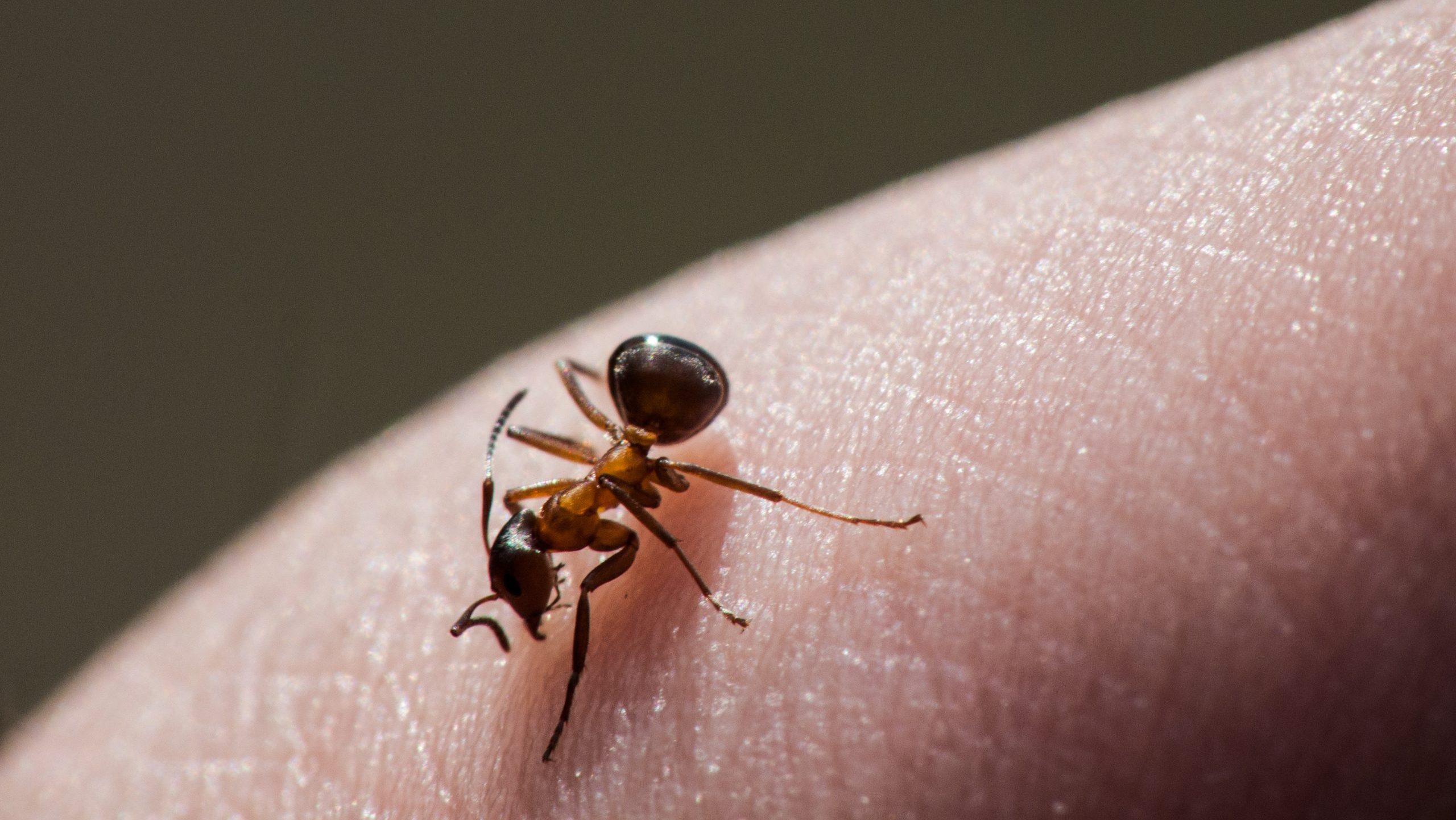 Ants are among the most common household pests in the United States. While many ant species are harmless, certain varieties bite or sting, leading to discomfort, pain, and occasionally severe allergic reactions. Understanding which ants bite can help homeowners effectively manage infestations and protect family members from painful encounters.
Ants are among the most common household pests in the United States. While many ant species are harmless, certain varieties bite or sting, leading to discomfort, pain, and occasionally severe allergic reactions. Understanding which ants bite can help homeowners effectively manage infestations and protect family members from painful encounters.
How Ants Bite and Why They Do It
Most ants have mandibles (jaws) that allow them to bite as a defense mechanism or to subdue prey. Some ants, particularly those in the Myrmicinae subfamily, also have stingers that allow them to inject venom. Typically, ants that bite do so as a way to defend their nests or when they feel threatened. Some species will bite and then follow up with a sting, injecting venom that can cause pain, itching, or allergic reactions. Ants bite humans primarily for the following reasons:- Defense of their colony – When their nest is disturbed, some ants attack in large numbers.
- Protecting themselves – If an ant is trapped or feels threatened, it may bite to escape.
- Predation – Some ants bite other insects or small animals to subdue prey, though they rarely bite humans for this reason.
Common Ant Species That Bite in the U.S.
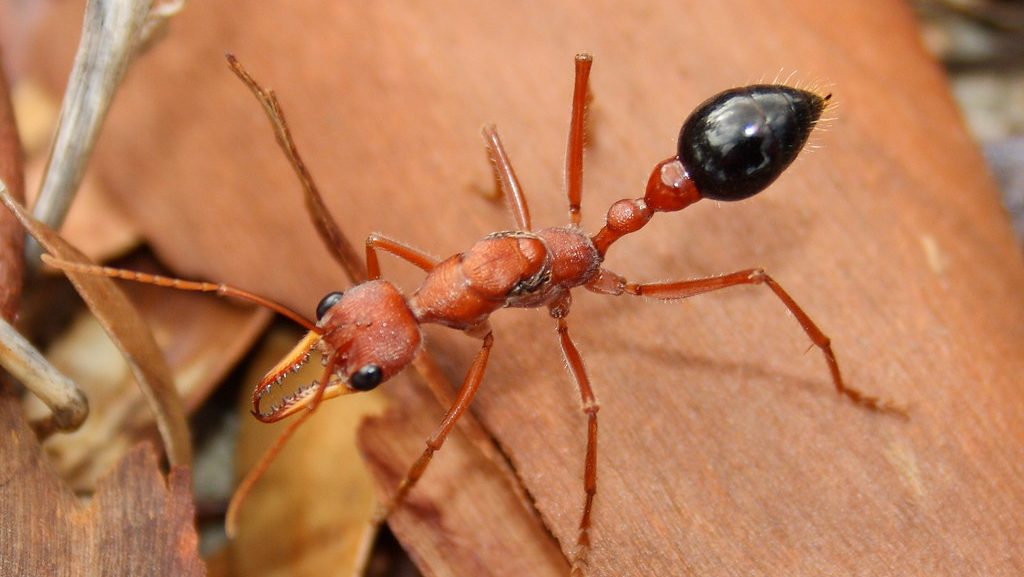

Not getting a solution?
Get your free pest control estimate today!1. Fire Ants (Solenopsis invicta)
Fire ants are among the most aggressive and dangerous ants in the U.S. They are known for both their bite and venomous sting, which can cause intense burning pain, swelling, and itchy pustules. Fire ants bite to hold on to the skin and then repeatedly sting, injecting venom that causes a burning sensation.Identification
-
Size: 1/8 to 1/4 inch long
-
Color: Reddish-brown body with a darker abdomen
-
Nest Type: Mounds in open, sunny areas such as lawns, fields, and sidewalks
Risks
-
Stings cause painful blisters filled with pus that can last for a week.
-
Fire ants swarm aggressively and sting multiple times.
-
Severe allergic reactions (anaphylaxis) can occur in some people.
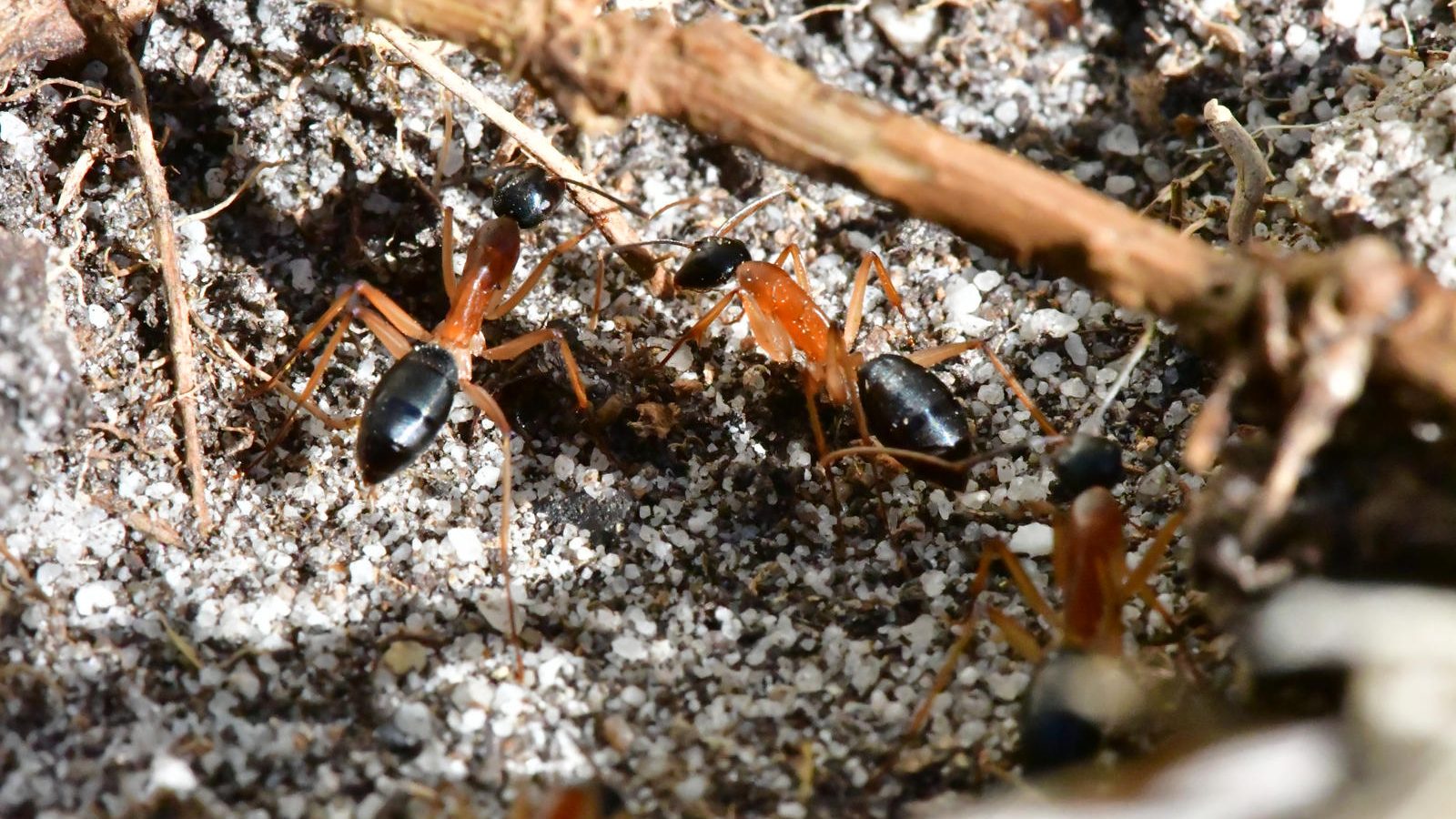
2. Harvester Ants (Pogonomyrmex spp.)
Harvester ants are primarily found in the Southwestern U.S. and are known for their extremely painful stings. These ants will bite and then sting to inject venom, which can cause burning pain that lasts for several hours.Identification
-
Size: 1/4 to 1/2 inch long
-
Color: Reddish-orange or brown
-
Nest Type: Bare-soil mounds, typically found in dry, open areas
Risks
-
Stings cause intense burning pain and swelling.
-
Their venom is among the most toxic of any insect in North America.
-
Some individuals may experience severe allergic reactions.
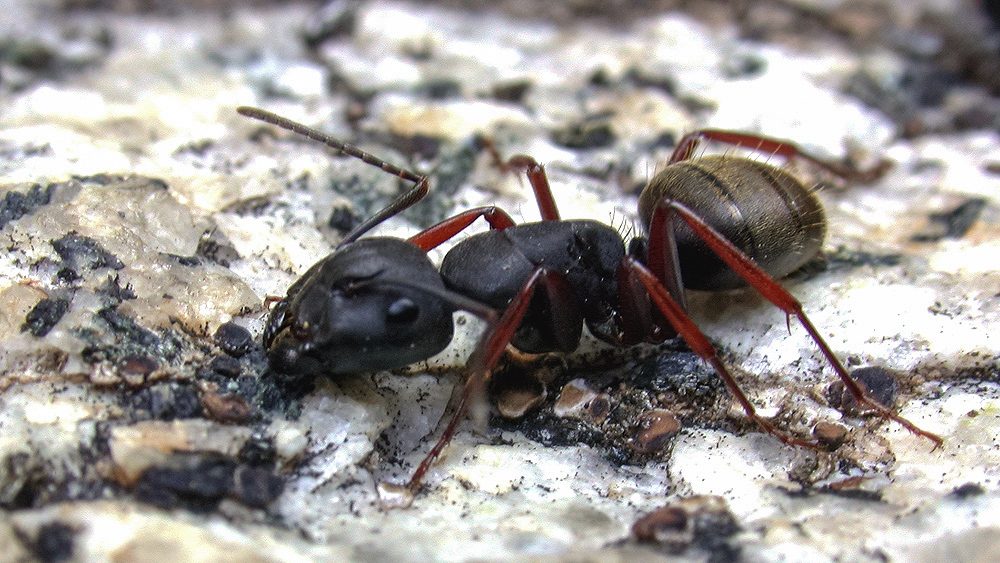
3. Carpenter Ants (Camponotus spp.)
Carpenter ants do not sting, but they can deliver painful bites using their strong mandibles. These bites may also be accompanied by formic acid, which causes a burning sensation.Identification
-
Size: 1/4 to 1/2 inch long
-
Color: Black, red, or brown
-
Nest Type: Moist wood, including walls, decks, and rotting tree stumps
Risks
-
Bites can break the skin and cause mild irritation or burning.
-
They do not inject venom, but their bites can be painful due to strong mandibles.
-
Carpenter ants can cause structural damage by hollowing out wood for their nests.
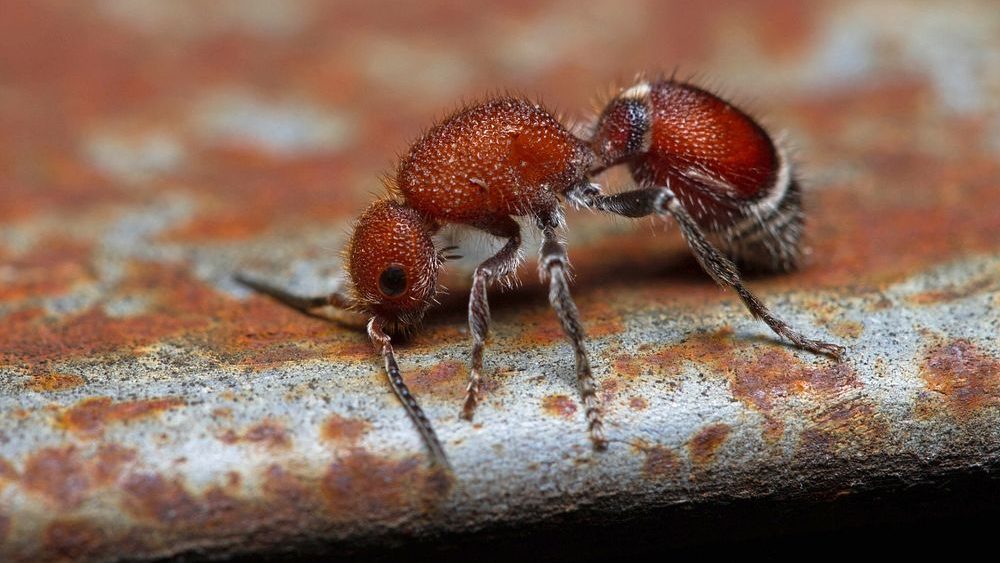
4. Field Ants (Formica spp.)
Field ants are often mistaken for fire ants due to their similar size and color. While they do not sting, they can bite aggressively when disturbed. Some species can also spray formic acid into the bite, causing a burning sensation similar to a mild sting.Identification
-
Size: 1/4 inch long
-
Color: Black, brown, red, or a combination
-
Nest Type: Large mounds in grassy fields, along sidewalks, and near trees
Risks
-
Bites cause sharp pain and slight swelling.
-
Some species can spray formic acid, leading to mild irritation.
-
Field ants do not swarm aggressively like fire ants.
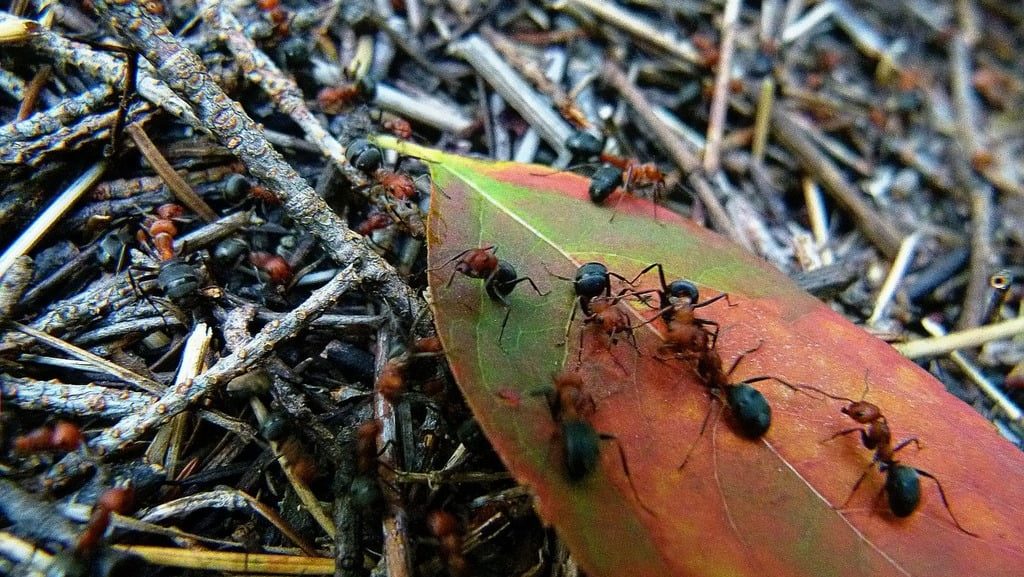
5. Crazy Ants (Nylanderia fulva)
Crazy ants, particularly the tawny crazy ant, are becoming an increasing nuisance in the Southern U.S.. They can bite, but their bites are mild and rarely cause serious pain. Unlike fire ants, crazy ants do not sting.Identification
-
Size: 1/8 inch long
-
Color: Reddish-brown
-
Nest Type: Near electrical equipment, in soil, under logs, or in walls
Risks
-
Bites cause minor irritation but no significant swelling or pain.
-
They tend to invade electronics, which can lead to short circuits and equipment failure.
-
They do not have venom, making them less of a threat than fire ants.
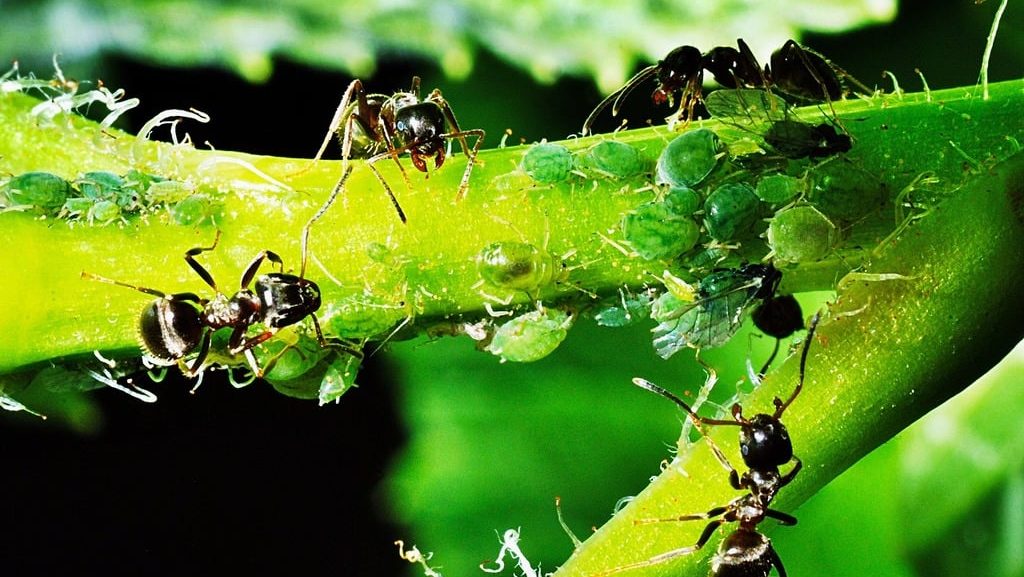
6. Little Black Ants (Monomorium minimum)
Little black ants are one of the most common household ants in the U.S. They can bite, but their bites are so small that they are rarely noticed. They do have weak stingers, but these are not capable of harming humans.Identification
-
Size: 1/16 inch long
-
Color: Jet black
-
Nest Type: Soil, cracks in the pavement, inside walls, and kitchens
Risks
-
Their bites are mild and usually unnoticeable.
-
They do not sting, and their primary risk is contaminating food.
How to Treat Ant Bites and Stings
Proper treatment can reduce pain and swelling if you experience an ant bite or sting. Here’s what to do:Immediate First Aid
-
Move to a safe location: If bitten by fire ants, move away from the nest to prevent more bites.
-
Wash the area: Use soap and water to clean the bite and prevent infection.
-
Apply a cold compress: This reduces swelling and numbs pain.
-
Use an antihistamine or hydrocortisone cream: Helps relieve itching and inflammation.
-
Avoid scratching: Scratching can lead to infection, especially with fire ant stings.
When to Seek Medical Help
-
Signs of an allergic reaction, including difficulty breathing, swelling of the face or throat, or dizziness.
-
Severe pain or swelling lasting more than a few days.
-
Signs of infection, such as pus, warmth, or spreading redness.
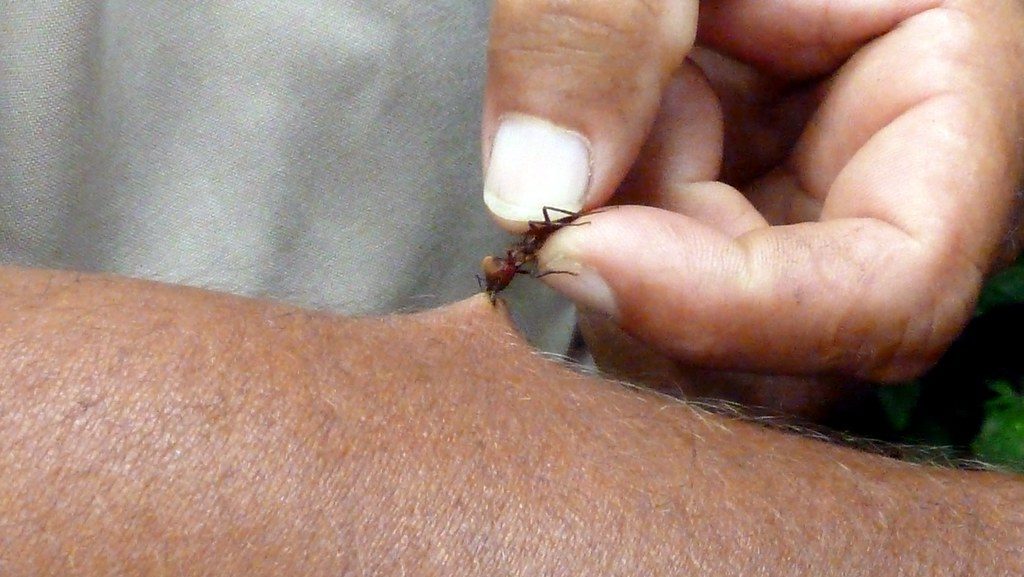
How to Prevent Ant Bites
To reduce the risk of ant bites in your home and yard, follow these prevention strategies:Indoors
-
Keep your food sealed in containers and clean up spills immediately.
-
Seal cracks and crevices where ants can enter.
-
Use bait traps or natural deterrents like vinegar and diatomaceous earth.
Outdoors
-
Remove potential nesting areas, such as woodpiles and debris.
-
Keep lawns trimmed and gardens well-maintained.
-
Treat fire ant mounds with approved insecticides or bait systems.
If you feel things have gone out of control, it is advised to contact pest control professionals. Our team can provide a customized approach to protect your home effectively. Visit our Species, Control, and DIY Guide sections for additional resources on yellow jacket and ways to tackle a yellowjacket infestation.





